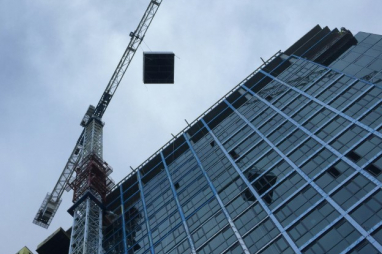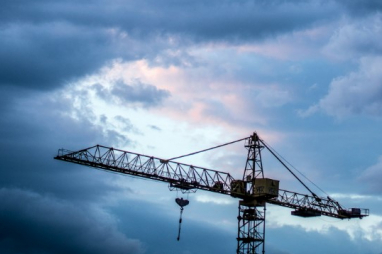- Кросівки nike air jordan 1 low 'pine green' Raging Bull Toro Bravo 2021 DD0587 - SBD - 600 Release Date - AIR introducing JORDAN
- Adidas x Pharrell NMD HU Gold - adidas Nizza Platform Mid Parley Almost Blue W Release Date - SBD
- Yeezys - Jordans, Musee-jacquemart-andre News, Jordan Essentials Statement Hoodie - release dates & nike.
- Sneakers Draked Viola
- Nike Air Max 90 Black Red DX9272 , SBD - Майки для бігу nike - 001 Release Date
- Miles Morales Shameik Moore Air Jordan 1 Spider Verse
- Air Jordan 3 Rust Pink CK9246 600
- air jordan xxxv cq4227 004
- eastbay restock large amount air jordans
- air jordan 4 og fire red DC7770 160 release details price
- Home
- News and analysis
- Info hubs
- Events
- Video
- Case Studies
- About us
- Magazine
- Advertising
Produced for the industry by the Association for Consultancy and Engineering
News
Growth projections ease to lowest since September 2020

Rising costs and continuing economic uncertainty combined to see April experience the weakest rise in new work so far this year, according to the latest monthly PMI figures released today (6 May 2022).
Although UK construction companies reported another strong rise in business activity during April, the speed of recovery lost momentum amid weaker new order gains. And signs of a slowdown in client spending contributed to another drop in growth expectations, with the degree of optimism about future workloads the lowest since September 2020.
At 58.2 in April, down from 59.1 in March, the headline S&P Global / CIPS UK Construction Purchasing Managers’ Index – which measures month-on-month changes in total industry activity – signalled the weakest rate of output growth since January. The index has nonetheless posted above the crucial 50.0 no-change mark in each month since February 2021.
Of the three main construction segments monitored by the survey, the fastest-growing remained commercial work (index at 60.5), followed by civil engineering (56.2). Construction firms cited pent up demand for commercial projects and spending related to Covid-19 recovery plans. Meanwhile, major infrastructure schemes such as HS2 were reported as factors helping to boost civil engineering activity.
Residential work remained the worst-performing sub-sector in April and saw the greatest loss of momentum (53.8 vs. 54.9 in March).
Suppliers once again struggled to keep up with demand for construction products and materials. Around 45% of the survey panel reported longer lead times, while only 2% noted an improvement. The resulting index measuring suppliers' delivery times across the construction sector signalled a sharper downturn in performance than in the previous month. Supply chain delays were attributed to shortages of staff, materials and transport, with these difficulties often exacerbated by delays at ports and the war in Ukraine.
Tim Moore, economics director at S&P Global, which compiles the survey, said: "The construction sector is moving towards a more subdued recovery phase as sharply rising energy and raw material costs hit client budgets. Construction companies have built up strong order books since the reopening of the UK economy, which led to another round of rising employment in April and these project starts should keep the sector in expansion mode during the remainder of the second quarter.”
Duncan Brock, group director at the Chartered Institute of Procurement & Supply, said: "Inflation hit the highest rate since September 2021, impacted on budgets and made customers think twice about committing. With the Bank of England confirming the interest rate as the highest for 13 years, the squeeze on business lending also led to a relatively gloomy outlook amongst builders for the year ahead, with sentiment the lowest since September 2020."
Stephen Marcos Jones, chief executive of the Association for Consultancy and Engineering (ACE), said: “We are hearing stark warnings – the OBR outlined a poor outlook for the rest of the year in the spring statement, and only yesterday the Bank of England shared its views that surging inflation could trigger a recession. While we need to be wary of self-fulfilling prophecies, we do need to recognise that we are now in choppy waters and the immediate post-pandemic optimism, which positively impacted on construction figures in 2021 and 2022, has now started to dissipate.
“The conflict in Ukraine is leading to further pressures on materials and the supply chain, fuelling inflation and an increase in project costs. We need to ensure this doesn’t negatively impact on the pipeline by encouraging public clients to push on through with committed projects – and in some cases to bring them forward – to support the industry through what will undoubtedly be challenging times ahead.”
Mark Robinson, group chief executive at SCAPE, said: “After a buoyant first quarter, a slowdown in sector output has felt almost inevitable. Price increases and rising material costs are beginning to factor into future purchasing decisions at a time when public organisations need the confidence to accelerate projects knowing they will be delivered on time and to budget. Coupled with interest rates creeping up, firms across the supply chain are likely to see margins further reduced in the coming months without careful project management and engaged clients. Any legislative support mooted in the Queen’s Speech next week, including the energy strategy bill, are unlikely to offer any immediate respite so open dialogue between all parties will continue to be vital for the rest of the year at least.”
Brendan Sharkey, head of construction and real estate at MHA, said: “In the long term, the sector may experience a decline in new civil engineering, commercial and industrial projects as businesses and investors start to hold back on new orders until price stability returns and there is more economic certainty. Now would be a good time to reassess delivery models to identify potential cost-savings. Firms also need to be vigorous in negotiating and renegotiating contracts. Rampant inflation means a job that looked profitable one month will be loss-making the next.”
Brian Smith, AECOM head of cost management UK&I, said: “Figures show industry resilience with activity continuing to grow on the back of strong orders last year, but cost inflation is becoming increasingly problematic and developers are progressing more cautiously. Inflation is a medium term issue. The immediate impact of the recent energy price shock is working through but lagged effects will continue to be felt later in the year as existing supply and energy agreements come up for renegotiation. Our latest view is that building cost inflation will hit 9% again in Q1 next year and will average around 8% in both 2022 and 2023.”
PMI data was collected between 11-28 April 2022.





